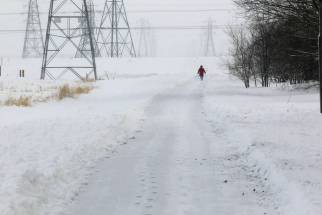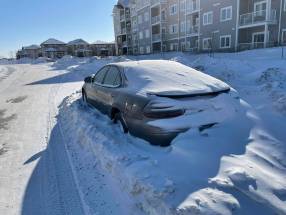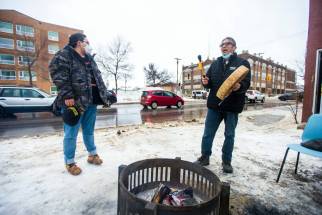Released from jail without a ride home Lawyers say policy puts rural clients in tight legal spot
Read this article for free:
or
Already have an account? Log in here »
To continue reading, please subscribe:
Monthly Digital Subscription
$0 for the first 4 weeks*
- Enjoy unlimited reading on winnipegfreepress.com
- Read the E-Edition, our digital replica newspaper
- Access News Break, our award-winning app
- Play interactive puzzles
*No charge for 4 weeks then price increases to the regular rate of $19.00 plus GST every four weeks. Offer available to new and qualified returning subscribers only. Cancel any time.
Monthly Digital Subscription
$4.75/week*
- Enjoy unlimited reading on winnipegfreepress.com
- Read the E-Edition, our digital replica newspaper
- Access News Break, our award-winning app
- Play interactive puzzles
*Billed as $19 plus GST every four weeks. Cancel any time.
To continue reading, please subscribe:
Add Free Press access to your Brandon Sun subscription for only an additional
$1 for the first 4 weeks*
*Your next subscription payment will increase by $1.00 and you will be charged $16.99 plus GST for four weeks. After four weeks, your payment will increase to $23.99 plus GST every four weeks.
Read unlimited articles for free today:
or
Already have an account? Log in here »
Hey there, time traveller!
This article was published 17/02/2022 (1390 days ago), so information in it may no longer be current.
Manitoba defence lawyers say some rural clients end up violating bail conditions because they have to fend for themselves in arranging transportation home upon release from jail.
They plan to meet with the justice minister to point out a gap in corrections protocol that means clients, in some situations, are in breach of their bail conditions because transportation to their home community has been left up to them.
“It seems to be a bit of an exercise in passing the buck, so to speak. No one has mandated responsibility for it, so sometimes someone helps (arrange transportation, and) sometimes people fall through the cracks,” said Winnipeg defence lawyer Gerri Wiebe. “It’s those people that fall through the cracks that concern me.”
When Manitobans are arrested outside an urban centre, they’re often taken to the nearest city to be held in custody while they wait for a bail hearing.
“It seems to be a bit of an exercise in passing the buck, so to speak. No one has mandated responsibility for it, so sometimes someone helps (arrange transportation, and) sometimes people fall through the cracks.” – Gerri Wiebe, Winnipeg defence lawyer
But when they’re released on bail, they’re not always able to get transportation back to their home community — even if they’re under a court order to live at home, defence lawyers say.
The pandemic has exposed gaps in transportation procedures for people who’ve been arrested but not convicted. The Criminal Defence Lawyers Association of Manitoba says it intends to raise its concerns with the justice minister.
One recent case that prompted the association to ask for answers involves an unvaccinated man who was arrested in Brandon on Jan. 25. He was transported to the Winnipeg Remand Centre, and released on bail by the consent of the Crown attorney on Jan. 27, without a way to get back to Brandon.

Morgan Lawrence, the man’s lawyer, said he phoned her from a 7-Eleven in Winnipeg after he was released. She was concerned he could be arrested for violating a bail condition that requires him to live in Brandon.
“The only reason he was brought to Winnipeg is because it was an internal choice by Corrections,” she said.
Wiebe, who is president of the defence lawyers association, said she asked Manitoba Corrections to review that case. She was subsequently told corrections officers had explained the man wouldn’t be allowed to board a bus upon his release because he was unvaccinated.
They said the man had suggested he could get a ride with his brother back to Brandon, so he was released. Wiebe said she was told Corrections tries to accommodate return transportation but is not obligated to arrange it.
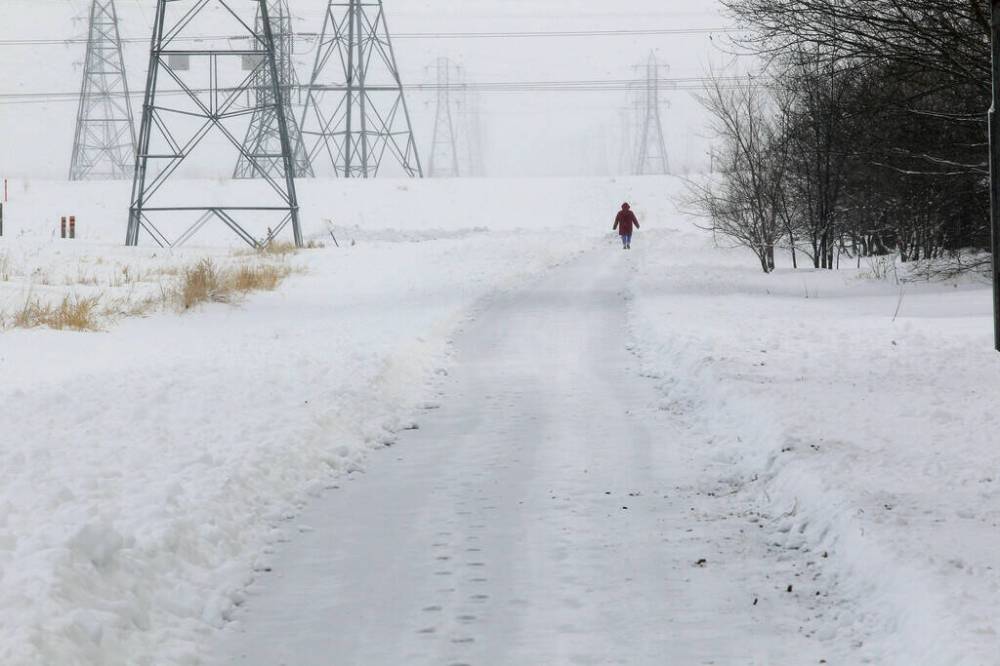
The justice department confirmed it’s not the province’s responsibility to provide return transportation.
In a statement, a Manitoba Justice spokesperson said correctional centre staff work on release plans with individuals, and “individuals are supported with transportation in the event it is required.”
When pressed about whose responsibility it is to provide return transportation, the department spokesperson stated: “There is no requirement that Manitoba Corrections provide transportation, though as mentioned earlier, staff in corrections work to create a release plan which includes transportation needs. Public safety and the well-being of the released individual is a priority for Manitoba Corrections.”
“There is no requirement that Manitoba Corrections provide transportation, though as mentioned earlier, staff in corrections work to create a release plan which includes transportation needs.” – Manitoba Justice spokesperson
It’s possible for individuals who’ve been granted release to consent to staying in custody until they can find a way home or catch a flight to their remote community, but Wiebe said it’s more likely people will overestimate their ability to get home if it means they’ll get out of jail.
Wiebe said she knows corrections officials do their best “on an ad hoc basis” to make sure someone has transportation, but said there needs to be a clear and fair policy.
“It’s a matter of basic fairness,” she said.
People arrested in remote communities typically have to be transported hours away to appear before a bail court judge. When they are released, they are far from home. If they can’t get back, they’re often in breach of their bail conditions.
Chris Sigurdson, a lawyer who has handled cases in northern communities for more than 20 years, said it’s a consistent problem that’s worsened under pandemic travel restrictions.
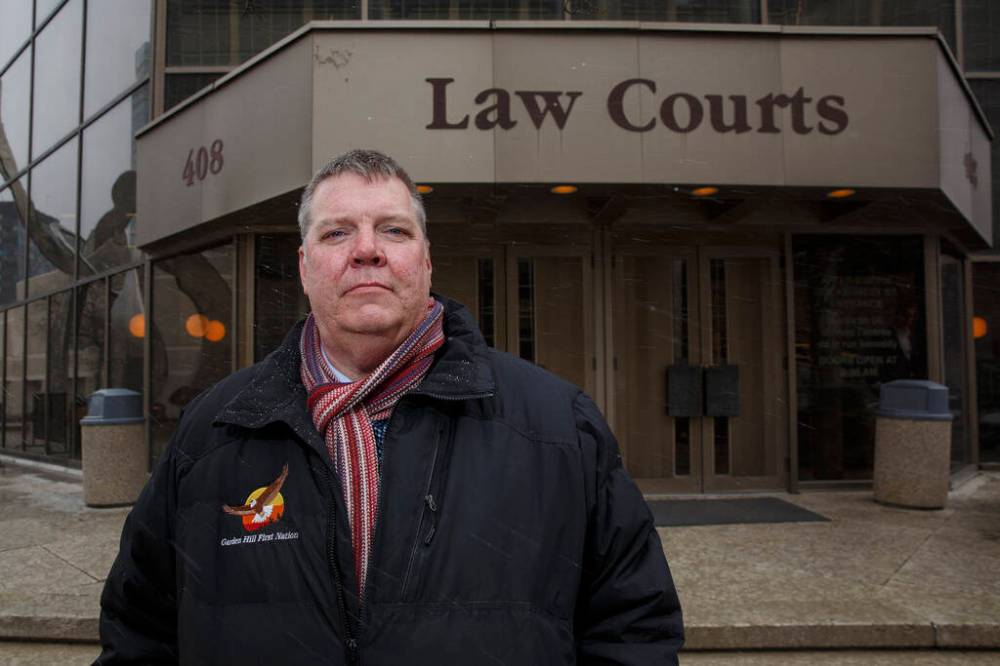
“The problem is common, it’s quite common, of people having bail to live in a certain place and not being able to get there,” he said.
He shared one example of an unvaccinated client who wasn’t able to board a plane home to a northern community and is considered missing in Winnipeg.
Transport Canada has exemptions to flight vaccination requirements for individuals travelling to and from certain remote, fly-in communities. A Manitoba Justice spokesperson confirmed corrections is aware of the exemption.
“Travel is expensive, and if people are not provided a trip back, they may not be able to get back, so they’d be breaching their court orders and they’d be subject to re-arrest. It’s an issue of fairness and equity,” Sigurdson said.
“Travel is expensive, and if people are not provided a trip back, they may not be able to get back, so they’d be breaching their court orders and they’d be subject to re-arrest. It’s an issue of fairness and equity.” – Chris Sigurdson
NDP MLA Nahanni Fontaine, justice critic for her party, said return transportation should be arranged by the justice department.
“You’re setting up citizens to fail, and you’re setting them up to breach with long-term consequences.”
katie.may@freepress.mb.ca

Katie May is a general-assignment reporter for the Free Press.
Our newsroom depends on a growing audience of readers to power our journalism. If you are not a paid reader, please consider becoming a subscriber.
Our newsroom depends on its audience of readers to power our journalism. Thank you for your support.




